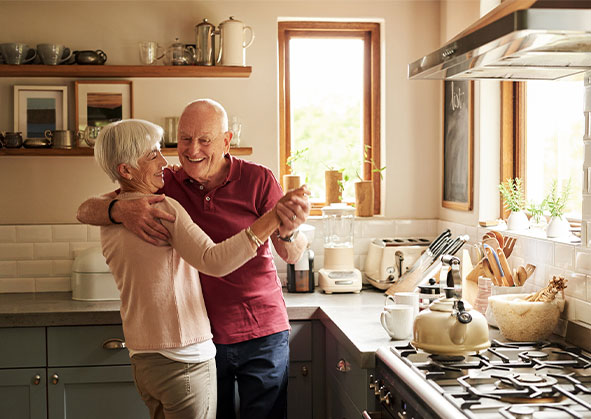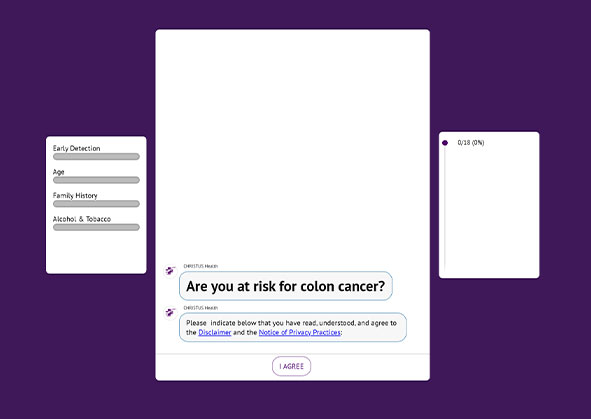Measure Your Risk for Colon Cancer
Colon cancer is one of the most treatable cancers when caught early. Understanding your risk is the first step toward prevention. Our quick online assessment helps you learn your risk factors—like family history, smoking, and alcohol use—so you can understand your health and take action.
After answering a few simple questions, you’ll receive a personalized health report with insights about your risk and steps you can take to protect your future. Share your results with your doctor to discuss the best plan for your health.
Your health matters. Start your assessment today.

How Can I Use This Report to Improve My Health?
After you take the colon cancer assessment, you immediately receive a report. The report notes your risk factors. It suggests changes to your lifestyle that can reduce your chance of developing colon cancer. It will also provide information on screening tests you may need. The report will show how your family history, exercise level and age play important roles in developing colon cancer.
Take the First Step
People over 50 are the most likely to get colon cancer. There are usually no warning signs in the early stages, so it’s important to talk with your doctor about when to begin screening. Some people have risk factors and should start screening earlier. The assessment can help you, and your doctor decide. Finding colon cancer in its earliest stages is the key to curing it. The assessment is the first step.
What Happens if My Colon Cancer Report States I Am at Risk?
A CHRISTUS Health nurse will contact you if the report shows you are at risk. You can also talk with your primary care doctor or our colon cancer care team.
Early detection of colon cancer is the first step to a cure. Protect yourself and your family. Take the assessment.

